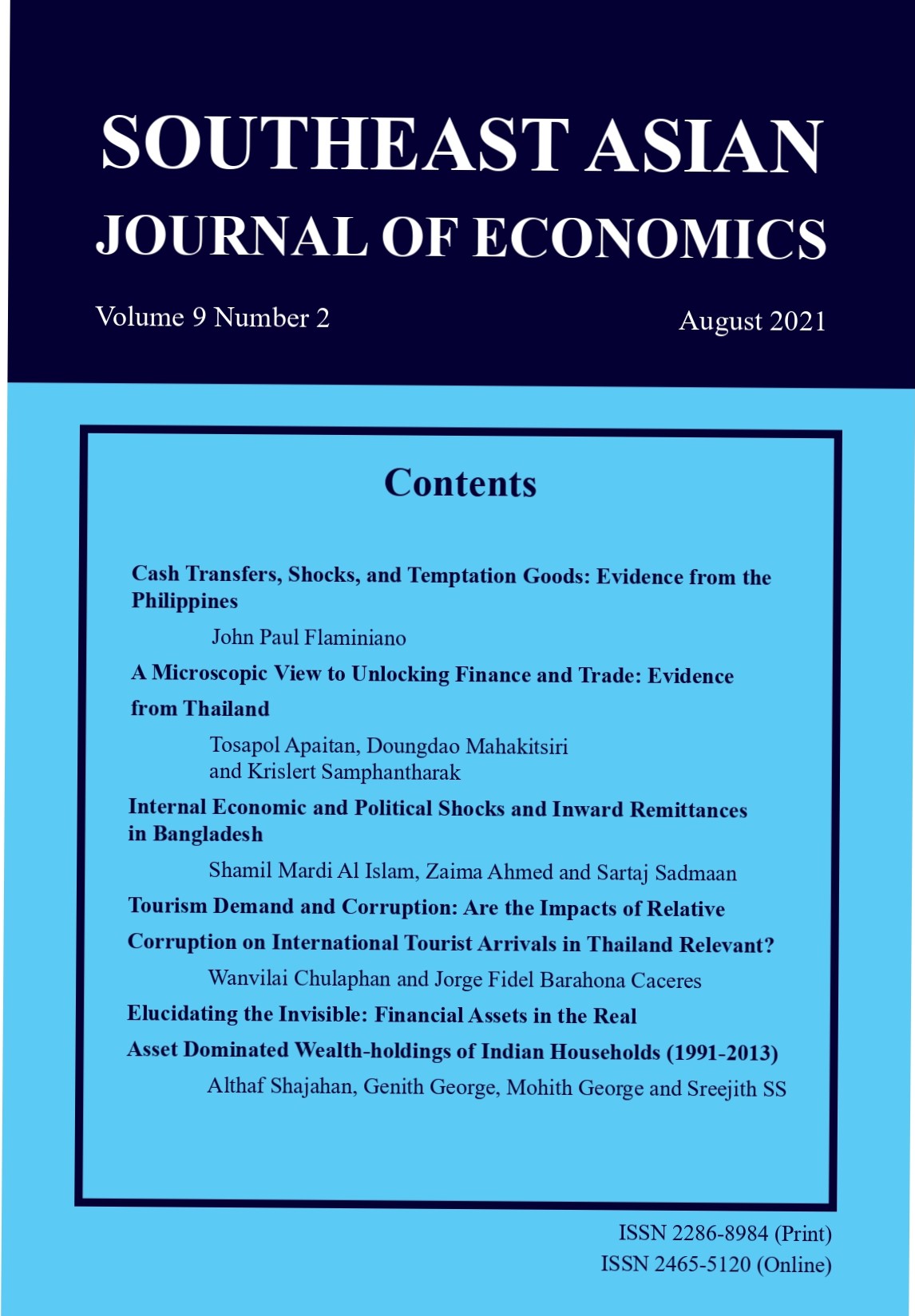Cash Transfers, Shocks, and Temptation Goods: Evidence from the Philippines
Keywords:
transfer payments, provision, and effects of welfare programs, redistributive effectsAbstract
We evaluate the impact of the Pantawid Pamilyang Pilipino Program, a conditional cash transfer (CCT) program in the Philippines, on alcohol and tobacco (temptation goods) expenditures in the presence of various shocks to household members such as death, illness, loss of employment, business failure, and natural or man-made disasters. Using a regression discontinuity design (RDD), we estimate whether the CCT program induces its beneficiary households to adjust their spending patterns differently from nonbeneficiaries when exposed to shocks. Our estimates show that, on average, CCT beneficiary households may allocate anywhere from 1.2 to 2 percentage points smaller share of their household income on alcohol and tobacco, relative to non-CCT beneficiary households when exposed to shocks. This result serves as suggestive
evidence against the notion of cash transfer misuse towards temptation goods when beneficiary households are exposed to various shocks.
Downloads
Published
How to Cite
Issue
Section
License
The submission of a manuscript implies that the paper is an original work and has not been published elsewhere. The author(s) authorize the journal to reproduce or distribute the paper in printed or other electronic forms.







